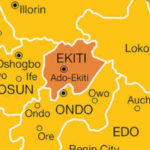The Federal Government has abolished the policy that made it mandatory for schools in Nigeria to use indigenous languages as the medium of instruction.
Minister of Education, Dr. Tunji Alausa, announced the decision on Wednesday at the 2025 Language in Education International Conference organised by the British Council in Abuja.
He said the move was approved during the 69th meeting of the National Council on Education held in Akure, Ondo State, from November 3 to 7.
The policy, which was introduced in 2022, required that pupils from Early Childhood Education to Primary Six be taught in their mother tongue or the dominant language of their community. It was designed to promote local languages and strengthen early learning.
However, Alausa said the government scrapped it after data showed that students in areas where mother-tongue instruction was used performed poorly in national exams.
“We have seen a mass failure rate in WAEC, NECO, and JAMB in certain geo-political zones of the country, and those are the ones that adopted the mother tongue in an oversubscribed manner,” he said.
“This is about evidence-based governance. English now stands as the medium of instruction from pre-primary, primary, junior secondary, senior secondary, and tertiary education.”
Alausa said using local languages for teaching over the past 15 years had contributed to poor education standards in some parts of the country.
“Using the mother tongue language in Nigeria for the past 15 years has literally destroyed education in certain regions. We have to talk about evidence, not emotions,” he stated.
He urged stakeholders who disagree with the decision to present verifiable data supporting the use of indigenous languages, noting that the government remained open to dialogue.
“The national policy on language has been cancelled. English now stands as the medium of instruction across all levels of education,” he declared.
The Minister of State for Education, Prof. Suwaiba Ahmed, said the government was also introducing new measures to strengthen literacy and numeracy at the foundation level.
“Now we are designing a training package for teachers that focuses on literacy and numeracy. This specifically targets teachers of pre-primary to Primary One to Three. We are training them on the best methods to teach literacy and numeracy and the appropriate approach to classroom learning,” she explained.
British Council Country Director, Donna McGowan, said the organisation would continue to support Nigeria’s education reforms.
“We’re committed to working hand-in-hand with the ministry. We work across all areas of education in terms of supporting teacher professional development, school leadership, and language proficiency,” McGowan said.











